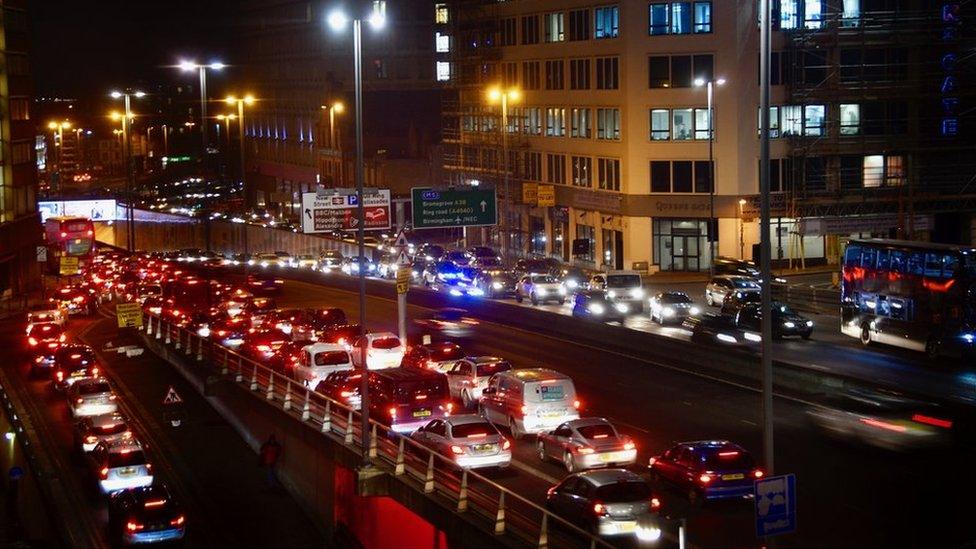'Tax on work' in Birmingham a price worth paying for clean air?
- Published

Can a levy on employee parking convince people to leave their cars at home?
Cleaner buses and more trams: But at what cost?
That's the question gripping political and business leaders in Birmingham. The city's council is promising substantial investment in public transport because "it needs to move away from an over-reliance on cars".
Easier said than done.
Birmingham may no longer be the "motor city" it was when the dizzying array of flyovers, underpasses and ring roads branched out in all directions in the 1960s and 70s.
But the congested city centre traffic tells the familiar story that the days of the car are far from done.
That's why Birmingham is among nine cities in which researchers at King's College London have been looking into the effects of poor air quality.
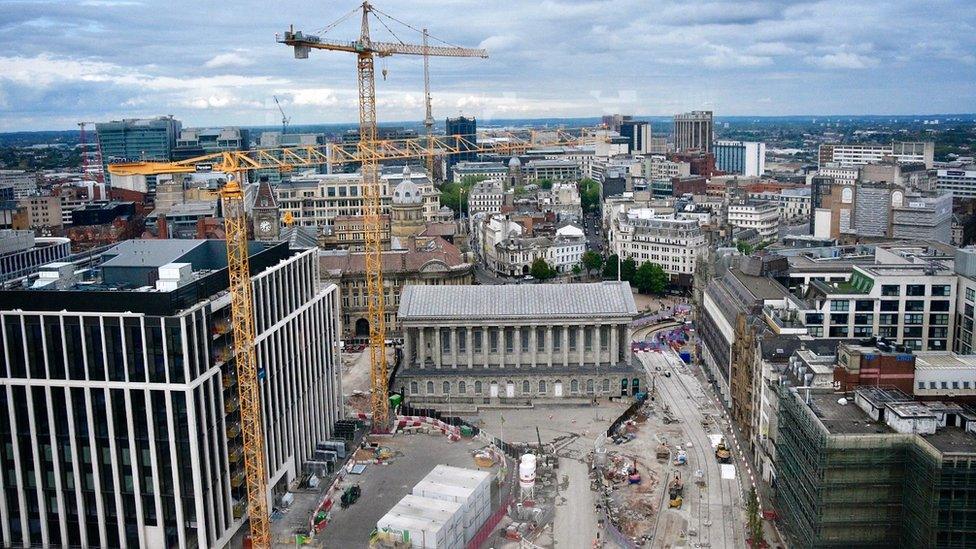
Work to extend Birmingham's tram network is under way
This week they published calculations indicating that on days with above average pollution in Birmingham, there would be 12 extra out-of-hospital cardiac arrests, 27 more admissions for stroke and 26 more for asthma.
Their research also suggests reducing air pollution by one fifth would reduce the incidence of lung cancer by between 5% and 7%.
In response, the government's Department of Environment, Food and Rural Affairs says: "We are taking urgent action to improve air quality and tackle pollution... [with]... new legislation to increase local powers to address key sources of air pollution.
"We are already working hard to reduce transport emissions and are investing £3.5bn to clean up the air."
Birmingham's Labour-controlled city council is promising to do exactly that, with a new generation of cleaner buses and more energy-efficient Metro trams.
Who pays?
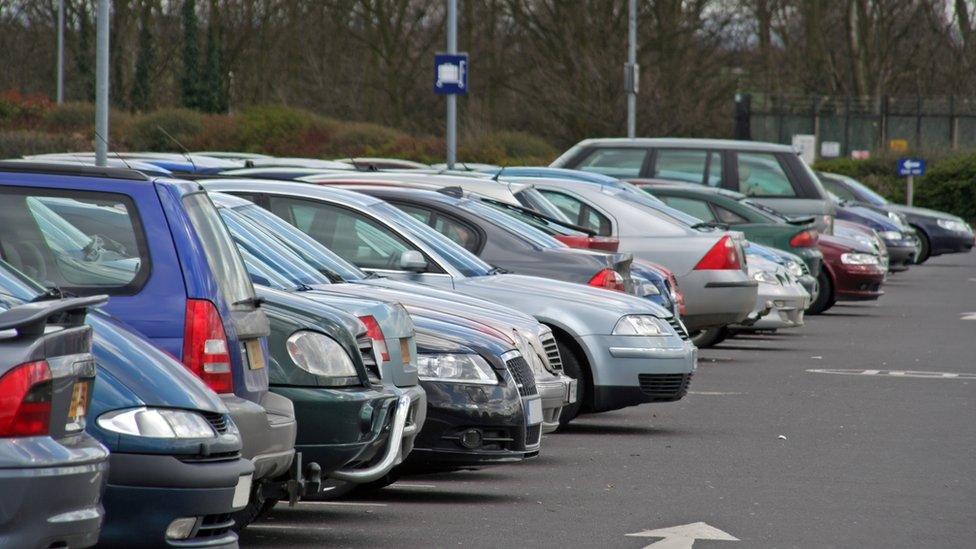
Birmingham City Council is proposing businesses in the city pay a £500 levy for each private car parking space they offer to employees
That, as usual, is the controversial part.
The argument is still raging over the council's proposed Clean Air Zone, which I first explained in my blog of 19 June 2018.
On top of this, the council is now proposing businesses in the city employing ten people or more should pay a £500 levy for each of the private car parking spaces they offer to their employees.
The cabinet member for transport Waseem Zaffar says: "We've got to look at other ways we can reduce air pollution in our city, which is ultimately killing people."
The council reckons the Workplace Parking Levy (WPL) will generate £7m a year from the 14,500 city centre workplace spaces.
If approved by the council, it would be due to be implemented in 2024.
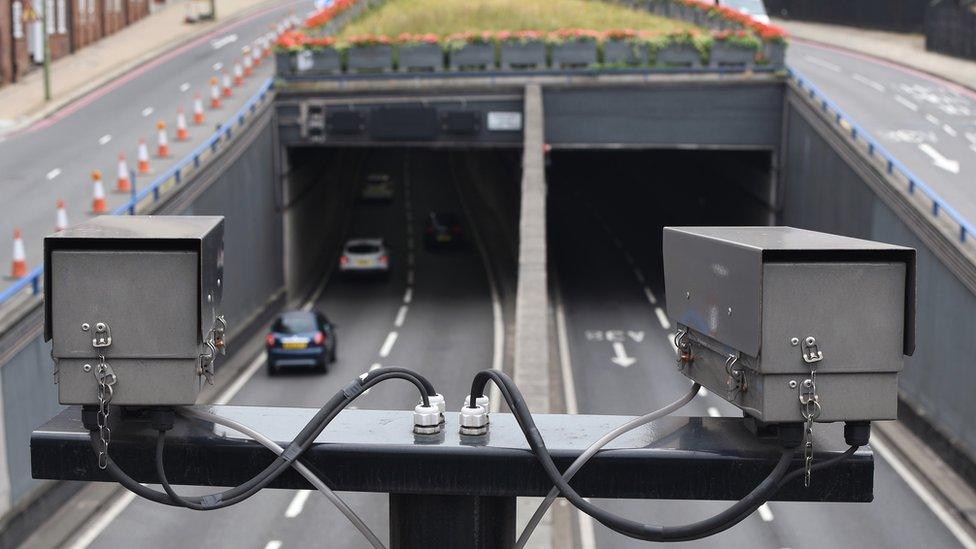
Birmingham is set to introduce a Clean Air Zone within the city centre
Perhaps not surprisingly, the idea has stirred the business and motoring lobbies into action.
The Birmingham Chambers of Commerce says it "would add to businesses' woes" and urges the council to "tread very carefully".
The RAC sees it as a tax on working people because those who have no alternative to driving to work "will end up being clobbered... almost certainly businesses will pass on the costs to their employees".
The road to Nottingham
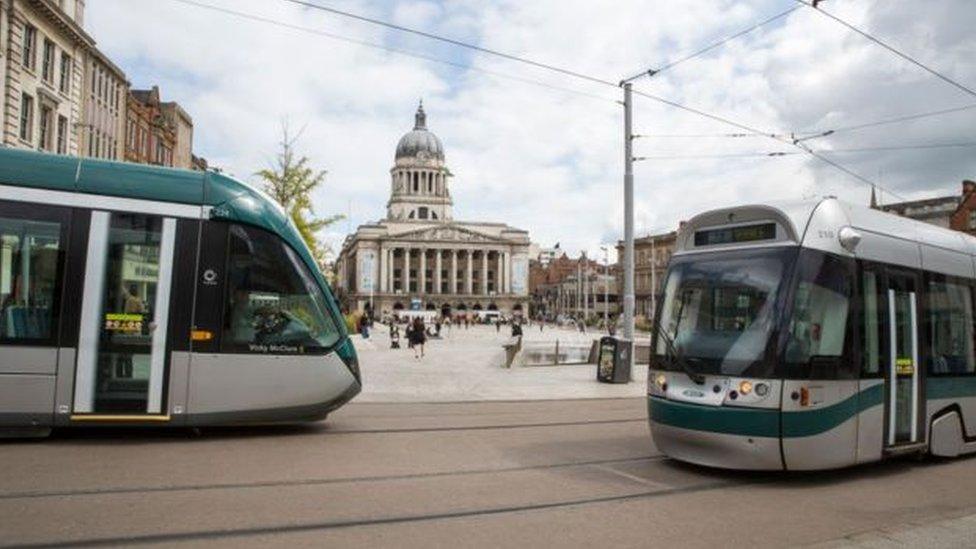
Nottingham has raised more than £50m for sustainable transport projects since 2012
That's what awaits our reporter Kathryn Stanczyszyn in search of first-hand experience of WPL in Nottingham.
It's the only UK city where the levy is already in place.
Since it was introduced seven years ago, the council's cabinet reports "little evidence" it has constrained economic activity there.
"Little", note, but not "None".
In return, the city boasts its own expanding tram network and a new generation of "Link Buses".
This weekend comes your chance to find out what Kathryn discovered there.
Sunday Politics Midlands is at 10.00 on BBC One in the West Midlands this Sunday, 27 October 2019.
- Published11 October 2019

- Published7 October 2019

- Published29 May 2021
